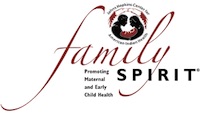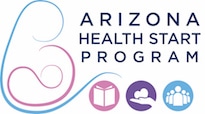Blog Archives
High Risk Perinatal Program

Get Care for the Most Vulnerable: High Risk Pregnant People and Neonatal Intensive Care Infants
The High Risk Perinatal Program (HRPP) is a comprehensive, statewide system of services dedicated to reducing maternal and infant mortality. The 3 components of the program include:
1) Maternal and Neonatal Transport Services that provide medical consultation and case management related to treatment/stabilization and, if needed, maternal and/or neonatal transport to available higher level(s) of care.
2) Hospital and Inpatient Physician Services that provide comprehensive, developmentally and risk appropriate care to critically ill infants within a hospital setting that is caring and supportive to the infant and their extended family.
3) Community Nursing Services that facilitates the transition of the child and family from the Newborn Intensive Care Unit to their home and community.
The program provides a safety net for Arizona families, to ensure the most appropriate level of care surrounding birth as well as early identification and support for the child’s developmental needs.
Benefits of HRPP
- Assure that high risk pregnant people and critically ill newborns receive timely access to appropriate medical care without regard to geographic location or ability to pay
- Provide interventions which result in the reduction of infant and maternal deaths and improved medical and developmental outcomes
- Provide support to families who have been impacted by the birth of a critically ill infant
- Assist families in the development of a secure and nurturing environment which will increase their child’s ability to learn and grow
- Connect families with early intervention services which can increase the child’s chances for optimal development and learning
Program Eligibility
- Babies that have spent 120 hours or longer in a Neonatal Intensive Care Unit;
- A parent or a baby that is being transported to a higher level of care;
- Babies born and within 96 hours of birth the baby is admitted to a Neonatal Intensive Care Unit;
- A baby being transported within 50 miles from a Neonatal Intensive Care Unit to their home.
Family Spirit
 Culturally-Sensitive Help for Native Families
Culturally-Sensitive Help for Native Families
The Family Spirit Program is a culturally tailored home-visiting intervention delivered by Native American paraprofessionals as a core strategy to support young Native parents from pregnancy to 3 years postpartum. Parents gain knowledge and skills to achieve optimum development for their preschool age children across the domains of physical, cognitive, social-emotional, language learning, and self-help. The Family Spirit Program consists of 63 lessons to be taught from pregnancy up to the child’s 3rd birthday. This in-home parent training and support program has been designed, implemented, and rigorously evaluated by the Johns Hopkins Center for American Indian Health in partnership with the Navajo, White Mountain Apache, and San Carlos Apache Tribes since 1995.
The Family Spirit Program offers parenting help to Native parents and families. If you are pregnant or a parent to a child under 3 years of age and interested in developing parenting skills, then this program is ideal for you. You will help your child develop emotional resilience and physical well-being. Parents will also learn how to build a strong, healthy family that is connected to your Native heritage.
Benefits of the Family Spirit Program:
- Increase parenting knowledge and skills;
- Address maternal psychosocial risks that could interfere with positive child-rearing (drug and alcohol use; depression; low education and employment; domestic violence problems);
- Promote optimal physical, cognitive, social/emotional development for children from 0 to 3;
- Prepare children for early school success;
- Ensure children get recommended well-child visits and health care;
- Link families to community services to address specific needs; and
- Promote parents’ and children’s life skills and behavioral outcomes across the lifespan.
Eligibility Requirements for the Family Spirit Program:
The Family Spirit Program Curriculum is designed to serve mothers prenatally through to a child’s 3rd birthday. Programs that are working with participants in this age range are eligible to be trained on Family Spirit. Each program will have unique eligibility requirements for implementing the program.
Arizona Health Start
 Personalized Care for Pregnant People and New Mothers
Personalized Care for Pregnant People and New Mothers
If you are expecting or a parent facing challenges, it’s important to know that someone can help you. Arizona Health Start is here to help. Our home visitors can connect you with a variety of community organizations that provide health care, education, parenting resources, and application assistance for other programs. We will get to know you and your family, so we can help you get the resources you need. We understand your culture, because we live in your community. We also understand what you’re going through, because we’ve helped families just like yours.
If you are expecting or have a child under the age of 2 and are interested in having additional support in accessing health care, education, or assistance programs, Arizona Health Start can help. The program is available throughout the state and is free for participants. Expecting parents and families with children enrolled in the program receive additional support such as navigating access to prenatal care; family medical care; and assistance in applying for AHCCCS, WIC and other programs that help you and your family thrive.
Benefits of Arizona Health Start:
- You’ll gain access to appropriate prenatal care for pregnant people.
- We provide access to appropriate family medical care.
- We’ll give application assistance for AHCCCS, WIC and other programs.
- Women will receive a health screening.
- We provide developmental screenings for children ages birth to age two.
Eligibility Requirements of Arizona Health Start:
- Must have primary residence located within the Contractor’s Program Site targeted service area.
- Pregnant and/or postpartum women with children under the age of 2.
- And one or more social risk factors.
